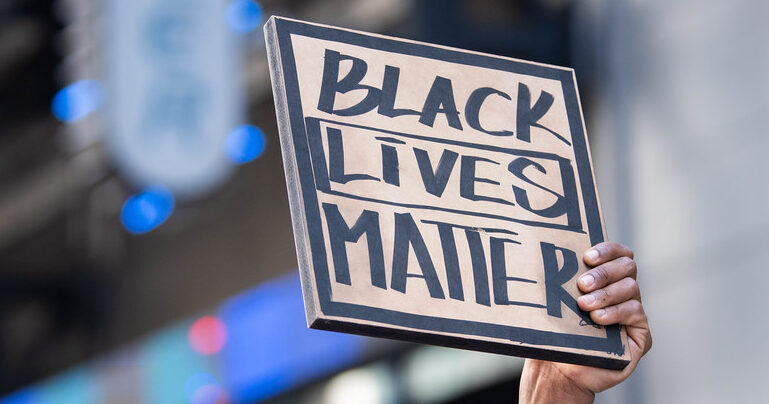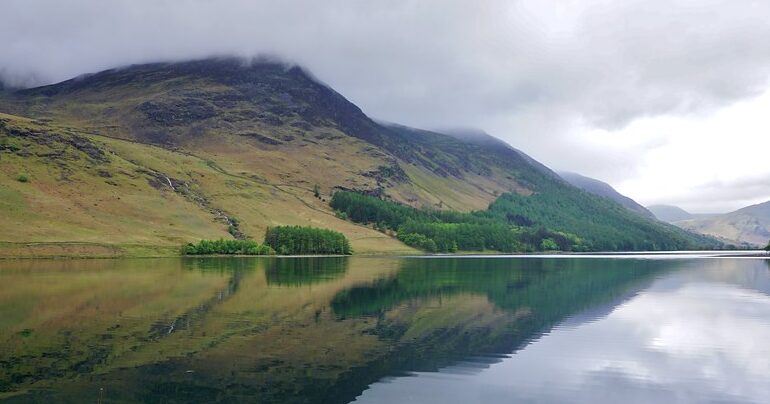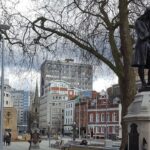Racism, rurality and reversing generational prejudice

Before I begin, I want to acknowledge that as an able-bodied white woman, my voice will undoubtedly be louder than the voices of people who are infinitely more qualified to talk on racism. Though I am continuing to educate myself, I will never be able to fully relate to experiencing any racially motivated abuse or oppression. I wanted to speak on the state of racism in rural pockets of the UK, given the demographics of these areas can be up to 99% White British. I have read multiple accounts from people of colour experiencing difficulty and abuse in these areas and want to do them justice.
2020 has seen a revolutionary reaction to police brutality in the United States, with the deaths of George Floyd, Breonna Taylor, Oluwatoyin Salau, Jacob Blake and countless more innocent lives igniting worldwide protests which continue the ever-important message: Black Lives Matter.
Needless to say, invalidating the Black Lives Matter movement and saying that instead, ‘all’ lives matter, attempts to erase the disproportionate suffering that black people have endured for millennia. The rhetoric of ‘all’ lives matter paints black suffering as being rooted within individual prejudices rather than structural racism. At the hands of the police, the justice system and the government, black people are imprisoned, abused and killed. To brush over this clear disparity and turn the discussion to the lack of attention to white people is insensitive and fundamentally rooted in privilege and anti-black sentiment.
Institutional racism and, more specifically, anti-blackness is not isolated to the United States, either. The UK is no less guilty of racism on both a systemic and casual scale. Police brutality exists in the UK despite the 2010 Equalities Act (preceded by the Race Relations Act of 1976) and relative absence of firearms in police forces. Families caught in the Grenfell tragedy are still yet to be rehomed. The Windrush scandal hasn’t left a stain on our government as far as middle England is concerned. Over 60% of Black people in the UK do not believe their health is as well protected by the NHS as white people. Britain’s disgusting colonial history is not taught in schools as part of the national curriculum. These are all examples of the UK’s institutional racism, and the list could go on.
Something the UK isn’t particularly willing to accept is its astonishingly white rural areas which at their heart, lack diversity. Although diversity isn’t the be all and end all solution to ending racism, majority white residents of rural areas will in one way or another be short-sighted to institutional prejudices in terms of race, sexuality, or gender due to their astoundingly homogeneous population. This isn’t to say that all rural dwellers are white and inherently bigoted, as people of colour have historically lived in rural areas since the era of the Transatlantic slave trade. However, the relative affluence and exclusivity of wealthy rural locations such as the Lake District and Cotswolds can be seen as intimidating and unwelcoming to anyone not white. With this in mind, it is also important to acknowledge that rurality and poverty are not mutually exclusive, and there are pockets of deprivation in every rural area. Take Lousia Adjoa Parker, who candidly writes about her experience as a black woman living in rural England as a prime example. For Parker, life in rural Devon was one of hostility and being made to feel an outsider due to her race: “most local people had never seen a black person face to face. The boys in our street racially abused us. It was 1985.”
Adjoa Parker’s experience is one which is undoubtedly common in other rural areas across the UK, such as the seemingly idyllic yet incredibly culturally hostile environment of the Lake District. Sprawling hills, vast lakes and outdoor pursuits. Seems like the ideal place to get away from the rat race. For white people — this isn’t thought twice about. This culture of leisure is one that is incredibly exclusive, and the national park has even been criticised by its management as being too white. Tourism in general is highlighted as intrinsically linked with whiteness. However, there isn’t as much focus on the impact of accessing green spaces for leisure on Black communities. After all, as research from 2016 suggests black families may steer clear of communal green spaces due to fears for their personal safety and exclusion due to racism.
According to government published arrest data by ethnicity, the two counties which display the most disproportionate arrests of black people are Cumbria and Dorset. Per 1000 people living in these counties, in Cumbria 104 black people have been arrested, compared with only 14 white people. In Dorset, 108 black people are arrested, while only 8 are white. This data relates to the period of 2006-2017, and although arrest statistics only demonstrate a small part of the prevalence of institutional racism in rural areas, they are important to mention. Especially considering these two counties are both almost 98% White British, these statistics reflect the rife anti-blackness that is present in rural areas.
There is often an assumption in rural areas that ‘there’s no racism here, because there are no black people to be racist to’. In reality, the lack of ethnic diversity can act as a catalyst for racist opinions to become gospel in all-white communities. This is not to say that lack of diversity causes structural racism, as even the most multiracial cities in the UK experience rampant racism. However, casual racism is reinforced by the all-white rural mindset where there is less likelihood that racism is called out by the white majority.

Living in rural Cumbria myself, I have noticed over the past few months that subtle microaggressions towards black people are increasingly being posted on Facebook, Twitter, and Instagram. Black Lives Matter protests are being shunned because there are ‘other ways to solve racism’. Taking down statues of colonisers and slave traders is ‘removing history’, ‘unpatriotic’ and ‘criminal damage’. These accusations often imply the trope that black people are violent, rather than simply demanding respect owed. Like myself, these people would not have known who Edward Colston was before his statue was triumphantly torn down. These racist posts appeal to the white, Conservative-voting mass of middle England and are part of what perpetuates rural racism. This needs to be addressed, and many stay silent. But to sit in a privileged position, do nothing and refuse to show solidarity with black people the world over, is to pick the side of racism.
The predominant issue that needs addressing is the racism being passed down through rural generations. Families and friends are not having difficult conversations about addressing their own racism and the racist structures in their societies. This is perpetuating anti-blackness in communities the country over, but in rural locations it is almost seen as a taboo to even consider challenging your older relatives and family friends on their racism. White people stay silent to avoid rocking the otherwise comfortable boat. The racist assumptions and opinions held by residents of rural Britain need to drastically change, and to change, they need to be challenged. At the dinner table, in auction marts, in pubs. White people need to address their own white privilege since being uncomfortable clearly isn’t enough. Action needs to be taken in the majority-white communities that are perhaps the most exclusionary and othering – in this case, rural locations. The structures that reinforce this racism need to be addressed, and the only way to do this effectively is to be a good ally and reinforce what black campaigners are demanding, using our collective voices to raise the platform of social justice.



It was a long time ago now, but as a middle-class white man the only specifically racist action I have personally encountered was from a farmer in Herefordshire in 1973. I had answered his ad for a few weeks of work on his hop harvest just before going to university and he telephoned me in reply. He explained that he did so because he wanted to ensure through my voice as well as my name that I really was white! He then offered me the job and I accepted it; and I don’t remember seeing anyone who wasn’t white in the month or more I spent in his very rural county. If it was now, I imagine I would refuse any job that was offered in that way, but I was young and naive at the time.